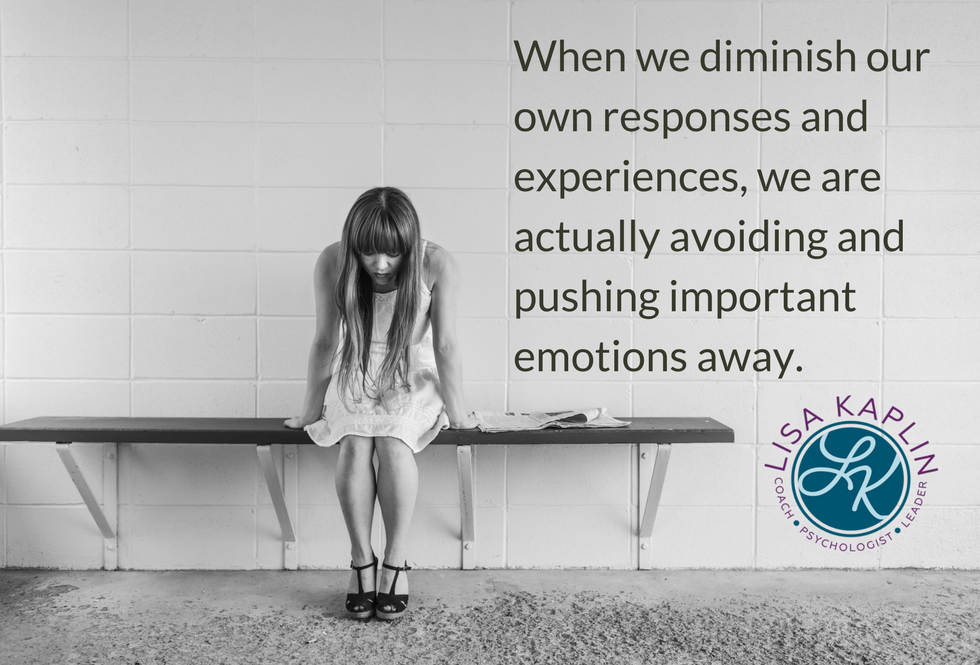Recently, a client called a situation in her life a “champagne problem”. Her point was that her problem comes from a place of privilege and thus is not as important or terrible as the problems of those who are less privileged. This concept caught my attention. I mulled it over for a few days while also noticing that most of my clients expressed similar concepts. Professional coaching isn’t inexpensive and thus most of my clients are financially privileged. This makes my sample population relatively skewed.
However, does it make sense that just because one is privileged in some way they are not entitled to feelings of sadness, frustration, insecurity, etc.? Let’s think about this scenario: You are upset that your boss spoke harshly to you at work. You call your best friend to complain about the situation and she says to you, “Seriously? Get over it. You make a good living and you have more than most people.“ How would you feel if your best friend responded that way? Most of us would be frustrated with that response and we’d feel as if our friend wasn’t really listening to us, right?
So why then is it okay for us to do this to ourselves? Whether we are privileged or not, are we not entitled to all and any feelings or emotions? Why must we diminish our own situation and rationalize it by saying that others have it worse? Of course others have it worse. You can always find examples of people who are in worse or better situations, but does that mean we are not entitled to our own experiences?
Acknowledging Our Feelings Is Not About Privilege
Here’s the problem. When we diminish our own responses and experiences, we are actually avoiding and pushing important emotions away. Feelings are not problematic unless we are not conscious of them. Unconscious, or suppressed feelings can lead to some big issues. This has nothing to do with privilege, but more to do with accepting the human experience in all it’s formats.
When we diminish our own responses and experiences, we are actually avoiding and pushing important emotions away. #problems #emotions #feelings #privilege Click To TweetThis doesn’t mean not acknowledging or being aware of our privilege, but rather accepting our own experiences as being as important as those of any of us. In fact, by being more empathic to ourselves, we are more likely to be empathic to the experiences of others. We are also more likely to listen to others with an empathic, present ear. Ultimately, it means not judging our own or others experiences and the responses to those experiences.
When we judge ourselves, our feelings, and our pain, we limit our life experiences and, in a sense, shut ourselves down. What would happen if we stopped rationalizing our champagne problems and instead allowed ourselves to acknowledge, validate, and experience all aspects of an emotionally alive life? My client ultimately had this realization and allowed herself to accept some feelings and experiences that she had not previously acknowledged. It helped her to set some limits around her career and to take some personal risks.
I’ve recommended champagne to celebrate!
Love,

Lisa Kaplin Psy. D. PCC

